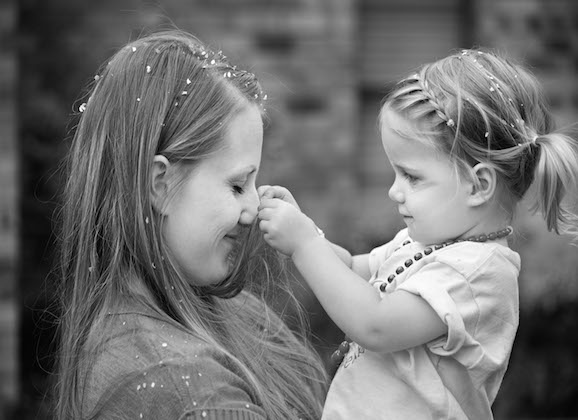One of the healthiest relationships is the democratic parenting style. Democratic mothers are nurturing, caring, kind, attentive, and maintain rules and healthy boundaries. A daughter raised with this parenting style will most likely thrive because she is able to have a voice, be respected, and make choices. This helps develop high self-esteem while creating a successful life.
An authoritarian mother may respond to her daughter by being angry, demonstrating less empathy towards her feelings and emotions, according to Melody Causewell, author of the article, “Types of Mother-Daughter Relationships.”
This type of mother is controlling, micromanages, acts critical, and doesn’t allow her daughter to make her own decisions, according to Peg Streep, Psychology Today. Her daughter may experience shame, low self-esteem, insecurity, or helplessness and may either become submissive or rebellious.
The permissive parenting style is like a “friend” or “buddy” to her daughter. The mother may be loving and nurturing but does not follow through with rules or consequences. Her daughter has free reign to do as she pleases in the home. Often, her daughter is unable to make good decisions and may get into trouble due to a lack of guidance.
An enmeshed mother is a mother who has no boundaries with her daughter. This type of parenting does not allow the daughter to become a separate person. The mother lives and thrives through her daughter’s success and achievements instead of her own. Often times these mothers are called “stage mothers,” according to Streep.
The “narcissistic” mother in psychology is a self involved mother. She controls and manipulates her daughter by suiting her personal needs, not her daughter’s.
To the outside world a narcissistic mother may appear to be charming, attractive, talented, and career oriented, but it can be very difficult for the daughter in terms of the way outsiders see her mother compared to what she experiences internally. The daughter may experience great pain or loss being parented by a narcissistic mother because she lacks her own identity, according to Streep.
Some mothers are considered to be unreliable and unavailable. One day she may experience a “good mommy” while the next day she experiences a “bad mommy,” according to Streep. The daughter has an ambivalent attachment to her mother which creates an unhealthy relationship.
Some daughters experience “role reversal” with their mothers. The daughter becomes like a mother figure to her own mom while also taking care of her, according to Streep. Her daughter may feel cheated as she ages, or feel as though she was neglected emotionally and mentally during her childhood. She may feel as if she was always “mother’s helper” but not her daughter.
Tips for mothers to improve their relationship with their daughter
- Learn to be quiet or bite your tongue
- Instead of reacting be proactive, walk away, and cool down
- Be funny or humorous to lighten a situation
- Teach her to believe in herself by asking for her ideas and opinions
- Start mother/daughter traditions: baking, trips, crafts, shopping, lunch, movies, etc.
- Role model appropriate behaviors
- Let your daughter earn privileges and responsibilities by doing chores or jobs
- Teach her healthy habits
- Take her to other experts for advice
- Learn not to take things so personally
- Know her friends
- Tell her how much you love her
- Teach her how to destress by doing yoga or going to the gym
- Be consistent with rules and consequences
- Learn to negotiate and listen empathetically
My daughter Jessica and I have started workshops to help improve mother-daughter relationships. For more information visit babyteeneducation.com
